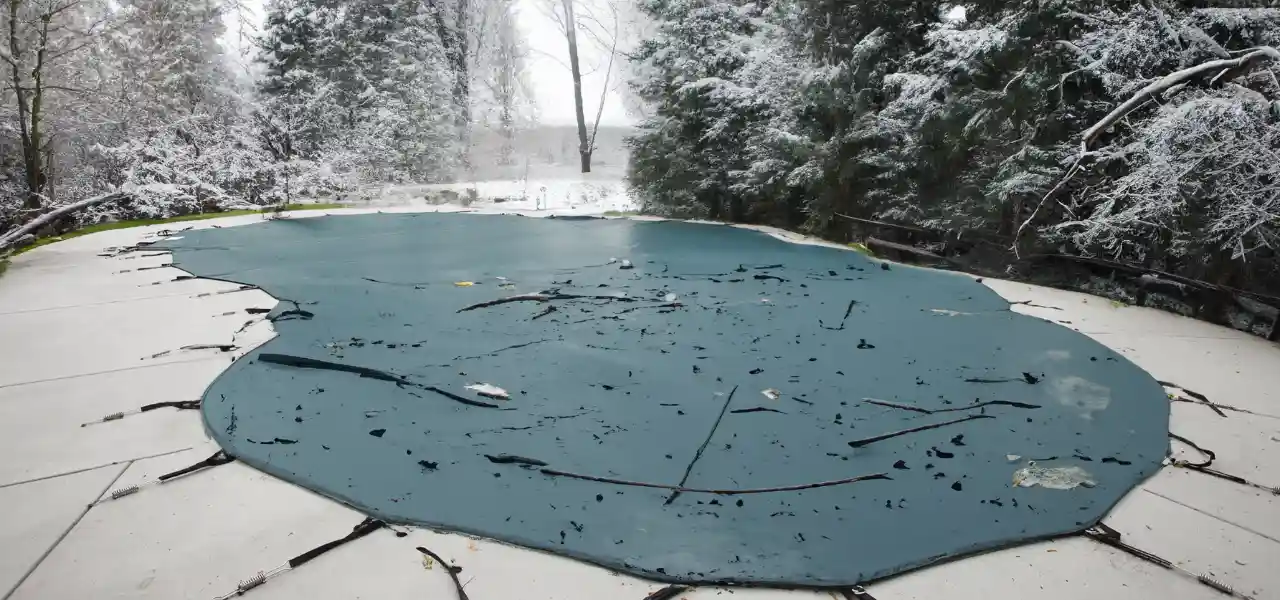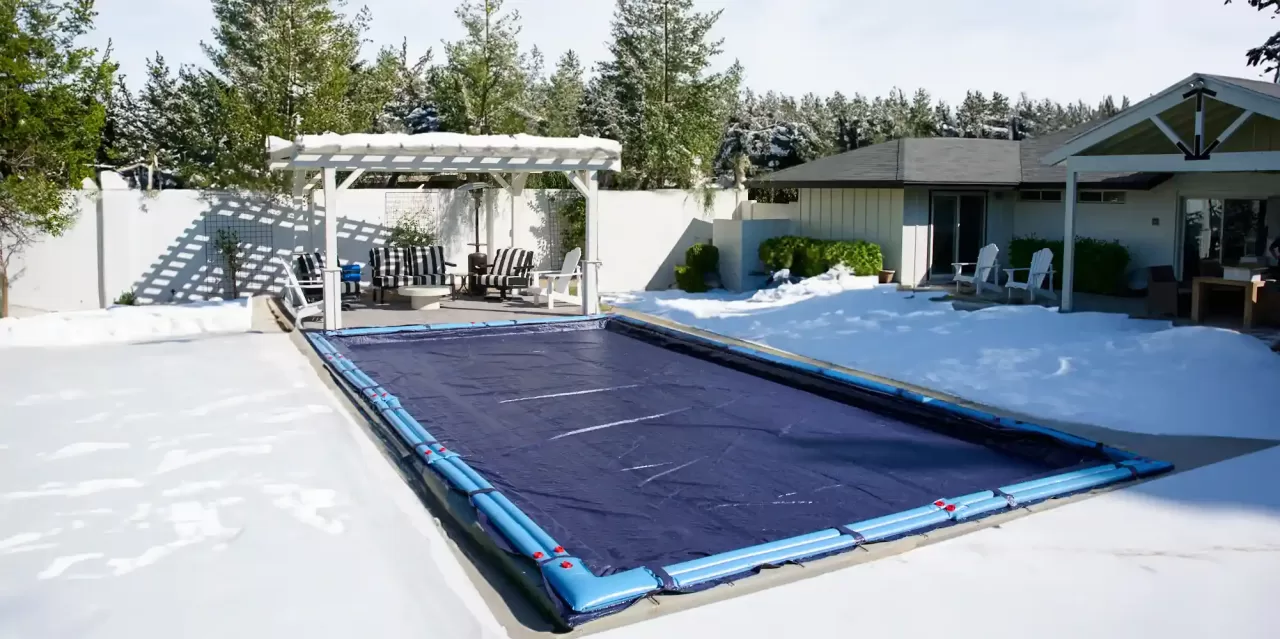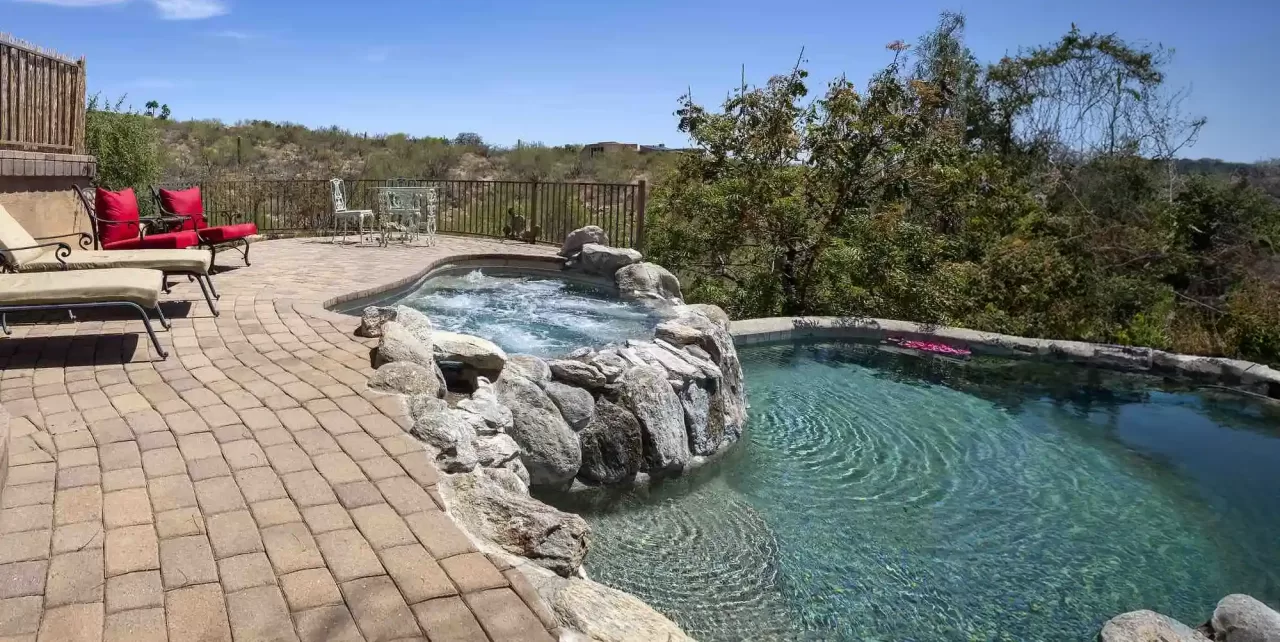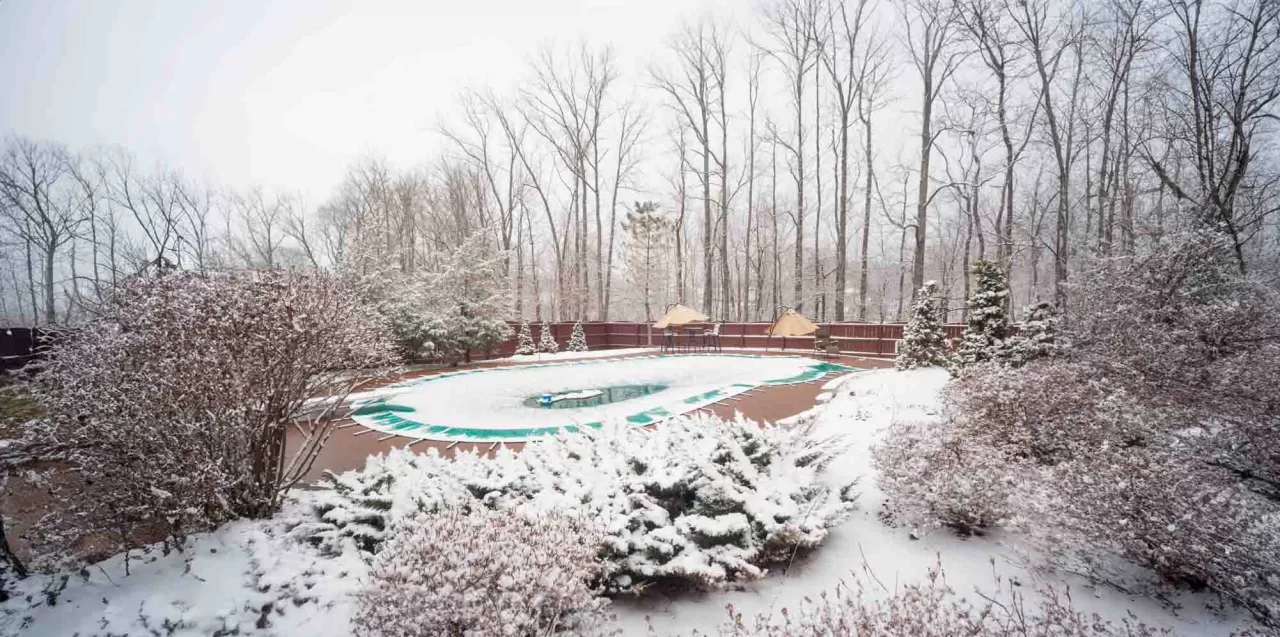FREE Standard Shipping On All Orders $100 or More!*

Winter Storm Pool Prep and Recovery
Winter is a season of beauty, with snow-covered landscapes and cozy nights by the fire. However, for pool owners, it can also bring challenges and potential damage to their beloved pools. As temperatures drop and the threat of winter storms increases, it's crucial to take proactive steps to protect your pool from the freezing conditions and potential havoc they can wreak. In this article, we explore the best practices for winter storm pool prep and recovery, ensuring your pool remains in excellent condition throughout the winter season.
Winter Storm Pool Prep: Getting Your Pool Ready
Preparing your pool for winter storms is a crucial step in ensuring its safety and longevity. While you may not have control over the weather, you can take certain measures to minimize their potential damage. Whether you live in an area where freezing conditions are common and your pool is closed, or you live in a warmer climate and keep your pool open, there are certain precautions every pool owner should take when a storm is on the horizon.
If Your Pool is Fully Closed…

The whole point of winterizing your pool is to protect it from the frosty, unpredictable winter elements. Therefore, if your pool is fully closed, there’s little extra work you’ll need to do to prep for a storm! Before the howling wind and relentless snow begins, inspect the following areas around your pool to ensure it's ready to weather the storm:
Inspect the Pool Cover
Whether you have a lightweight winter cover or a sturdy safety cover, double-check that all water bags and anchors are secure. Refill any low water bags and tighten any safety straps if necessary. Use a pool brush to sweep any debris off the cover, and place a cover pump on top of the cover to remove any excess water or melted snow.
Protect the Plumbing Equipment
Since you already blew the water out of your plumbing lines when you closed your pool, your plumbing equipment should be in good shape. But it's not a bad idea to toss towels or blankets over your filter, pump, and heater for added protection, especially if you're expecting freezing temperatures.
Adjust Water Chemistry
While there's not much water balancing you can do during the winter due to your pool's plumbing system being shut off, there are some chemicals you should consider adding to your pool. Chlorine-free shock and winter algaecide are invaluable when it comes to fighting off contaminants from winter storms. Add the necessary dosage of both chemicals to your pool before a storm hits, to help prevent algae growth caused by debris buildup in your pool.
If Your Pool is Open...

Unlike a fully-winterized pool, an open pool requires a bit more prep work when it comes to winter storm protection. This is simply due to the fact that an open pool is significantly more exposed to the elements, and therefore more at risk. The following tips will help protect your pool from the harsh winter woes.
Balance Water Chemistry
Maintaining proper water chemistry is essential for the overall health of your pool, especially before a major storm hits. Balancing your pool before a storm hits will help ensure your pool stays in good shape to ward off any bacteria and contaminants. Doing so will also help prevent scale buildup, corrosion, and algae growth during the winter.
Test and balance the water so the chemicals are within the following ranges:
- pH: 7.4–7.6
- Total Alkalinity: 80–120 ppm
- Calcium Hardness: 200–400 ppm
- Free Available Chlorine: 2.0–4.0 ppm.
Clean the Pool
Before a winter storm rolls through, it's important to clean and brush your pool thoroughly. Remove any debris, such as leaves and twigs, from the pool with a skimmer net. Then, use a pool brush to scrub the walls and floor to loosen up any algae and dirt. After brushing your pool, turn your automatic cleaner on for a cycle, or manually vacuum the floor and walls. This step is essential, as it prevents the accumulation of debris, which can lead to clogged filters and compromised water quality after the storm.
Clear the Area Around Your Pool
Secure all pool accessories, like toys, pool cleaners, skimmer lids, and even pool ladders, in a safe place — like the garage, shed, or even inside the house. Storing pool equipment and furniture decreases the chance that these items will become dangerous flying projectiles.
Additionally, clear the landscaping around your pool, especially any overhanging tree branches. While the branches may look beautiful on the tree, they will cause you a major headache — and backache — if you have to pull them out of your pool after the storm.
Protect Plumbing Equipment
When it comes to winter storms, freezing temperatures are the most concerning aspect, as they can wreck havoc on your plumbing equipment. To avoid frozen, cracked pipes, run your pump before, during, and after the storm to promote water circulation. Remember, moving water won't freeze as quickly as standing water! You can also place towels or blankets over your pipes to protect them from the cold.
Winter Storm Pool Recovery: Restoring Your Pool After a Storm
Despite your best efforts, winter storms may still bring unexpected damage to your pool. In such cases, it's crucial to take immediate action to minimize further harm and restore your pool to its optimal condition. The following steps apply to both winterized and open pools. Let's explore the necessary steps for winter storm pool recovery.
1. Assess the Damage
After a winter storm passes, carefully inspect your pool for any signs of damage. Check the pool cover for tears, rips, or displacement. Examine the pool walls, floor, and equipment for any visible cracks, leaks, or other structural issues. Take note of any debris or foreign objects that may have entered the pool during the storm.
2. Remove Debris and Clean the Pool
Remove any debris or fallen branches from both the pool and the pool cover. Use a skimmer net to collect larger debris, and a vacuum or automatic cleaner to remove smaller particles and sediment. Ensure the pool is free from any obstructions that may hinder proper filtration and circulation.
3. Restore Water Chemistry
Test the water chemistry and balance the pH, total alkalinity, calcium hardness, and chlorine levels to ensure optimal water quality and prevent the growth of algae or bacteria. Shock the pool with the recommended dose to eliminate any contaminants and restore clarity to the water.
4. Inspect and Repair Pool Equipment
Carefully inspect all pool equipment, including the pump, filter, heater, and any other accessories, for any damage caused by the storm. Look for signs of water infiltration, cracks, or malfunctioning parts. Replace or repair any damaged components to prevent further issues and ensure the proper functioning of your pool equipment.
5. Seek Professional Assistance if Needed
If the damage to your pool is extensive or beyond your expertise, it's advisable to seek professional assistance. Contact a pool service technician who can assess the damage, provide expert advice, and assist with repairs or replacements as necessary. Professional help ensures that your pool is restored to its optimal condition, minimizing any potential long-term issues.
Additional Winter Pool Care Tips

In addition to the essential steps mentioned above, here are some additional tips to help you maintain your pool during the winter season and mitigate potential damage:
- Monitor the weather forecast regularly and take necessary precautions in advance of approaching winter storms.
- Keep the pool cover free from excessive snow accumulation by periodically removing snow using a rake, broom, or leaf blower.
- Insulate exposed plumbing lines with blankets or towels to prevent freezing.
- Ensure proper water circulation by running the pool pump for a few hours each day, even during the winter months.
- Regularly check the pool water level and maintain it within the recommended range to prevent structural damage or excessive strain on the pool cover.
- Use a pool cover pump to remove excess water from the cover and prevent sagging or damage.
- Perform routine maintenance tasks, such as checking water chemistry and inspecting equipment throughout the winter season, to ensure optimal pool health.